Abstract
Two illustrations of single-case research are described in which an isolated therapeutic variable was sequentially introduced, withdrawn, and reintroduced while changes in a clinically relevant behavior were measured. A claustrophobic patient and a knife-phobic patient received graduated practice in facing their phobic stimuli; length of time the claustrophobic patient stayed in a small dark room per trial, and length of time the knife-phobic patient kept knife exposed per trial were measured. In both experiments, when feedback of these time scores was withdrawn, ongoing progress was retarded. Reinstatement of feedback led to renewed improvement. In Experiment 2, adding and removing contingent verbal praise against a constant background of precise feedback did not significantly alter rate of progress.
Full text
PDF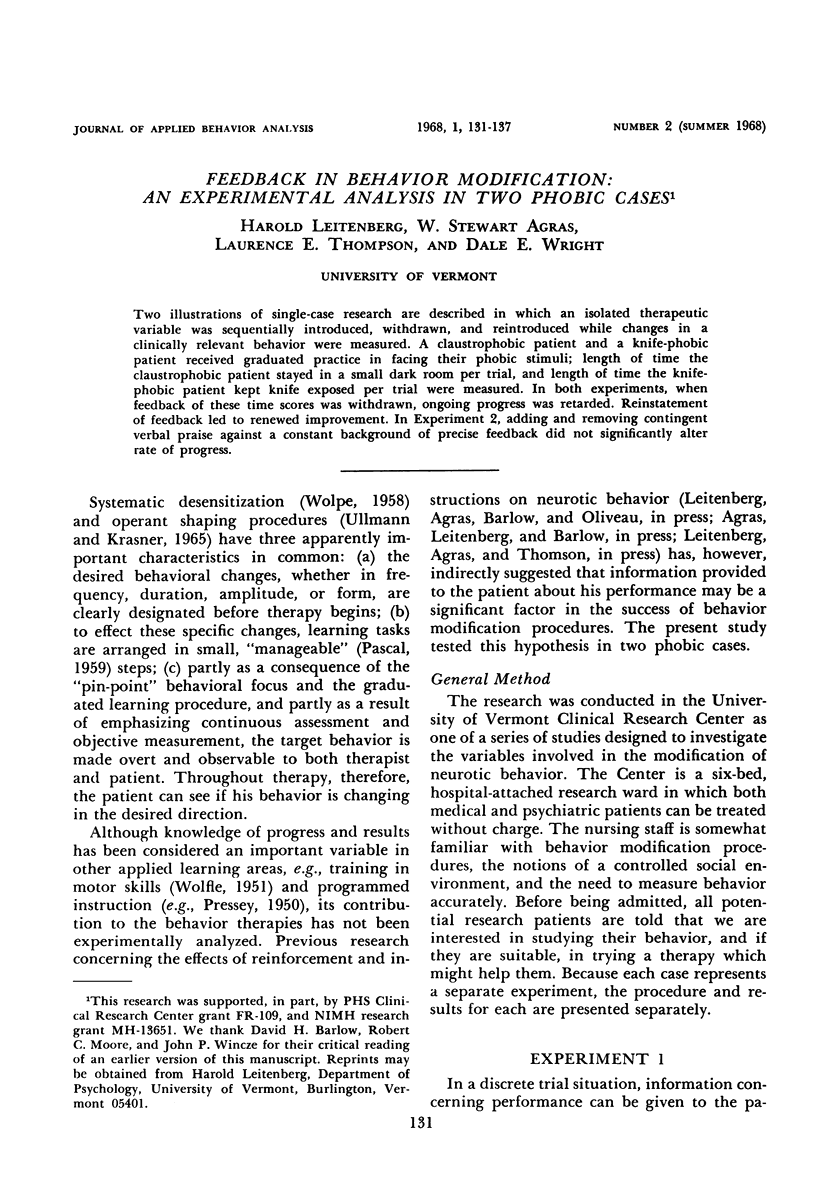
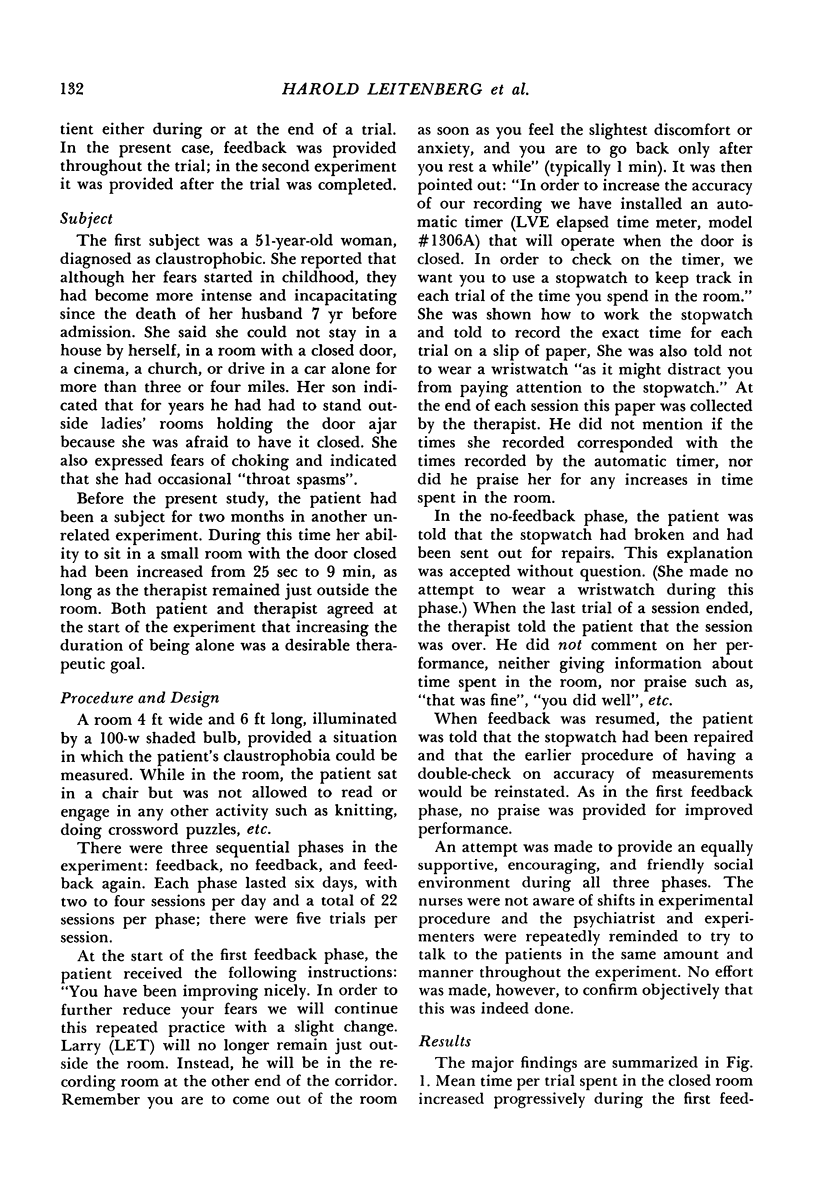
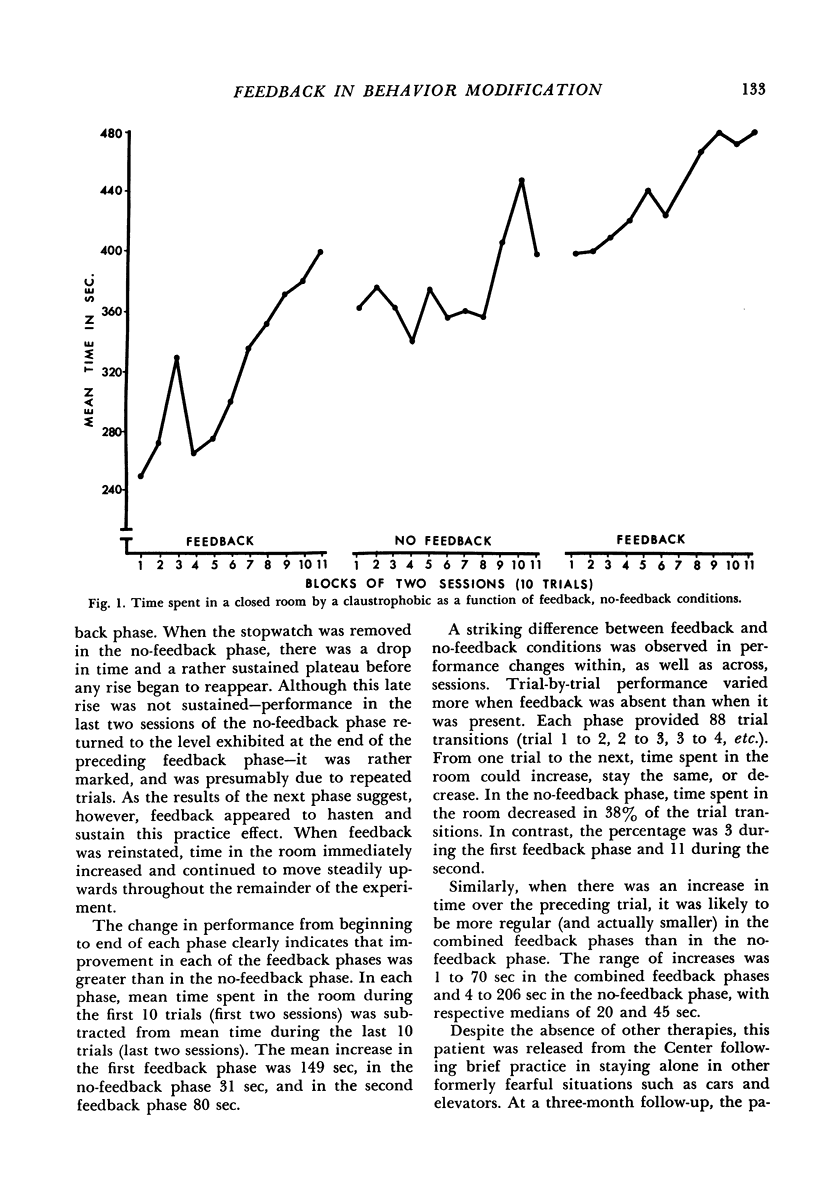
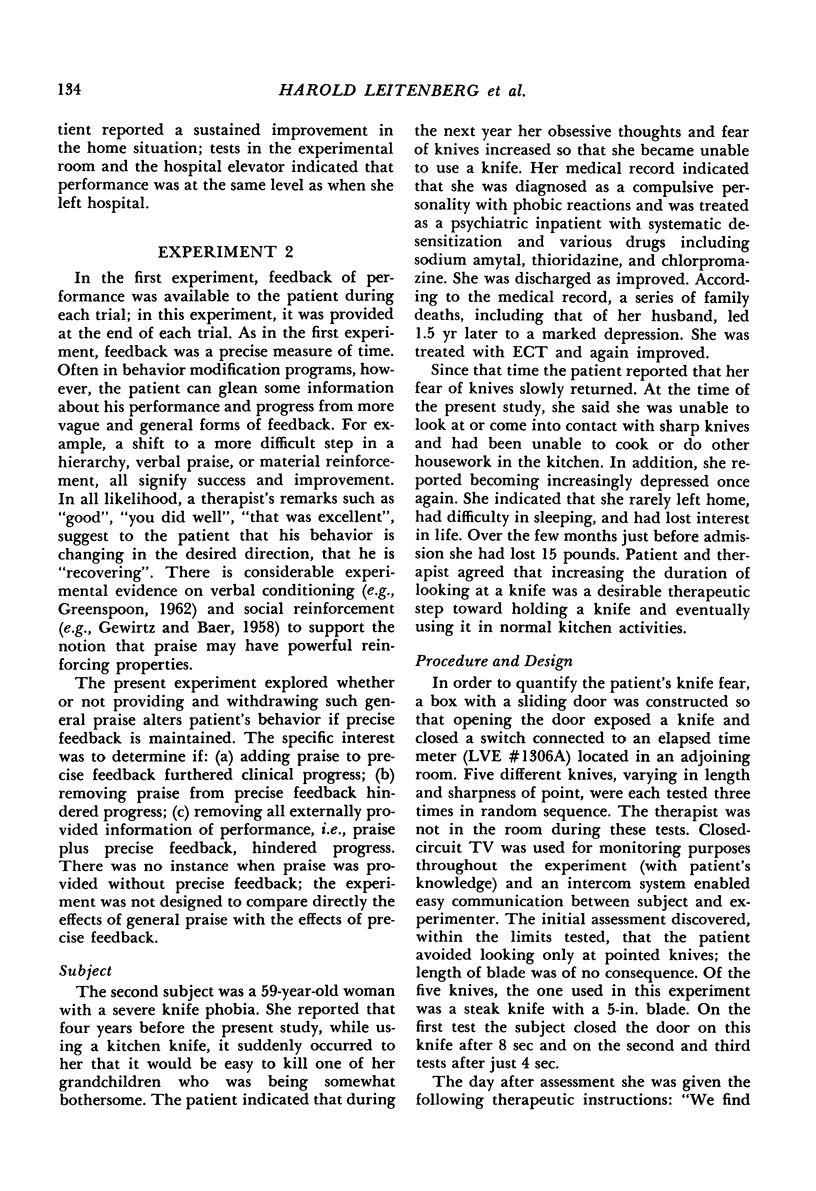
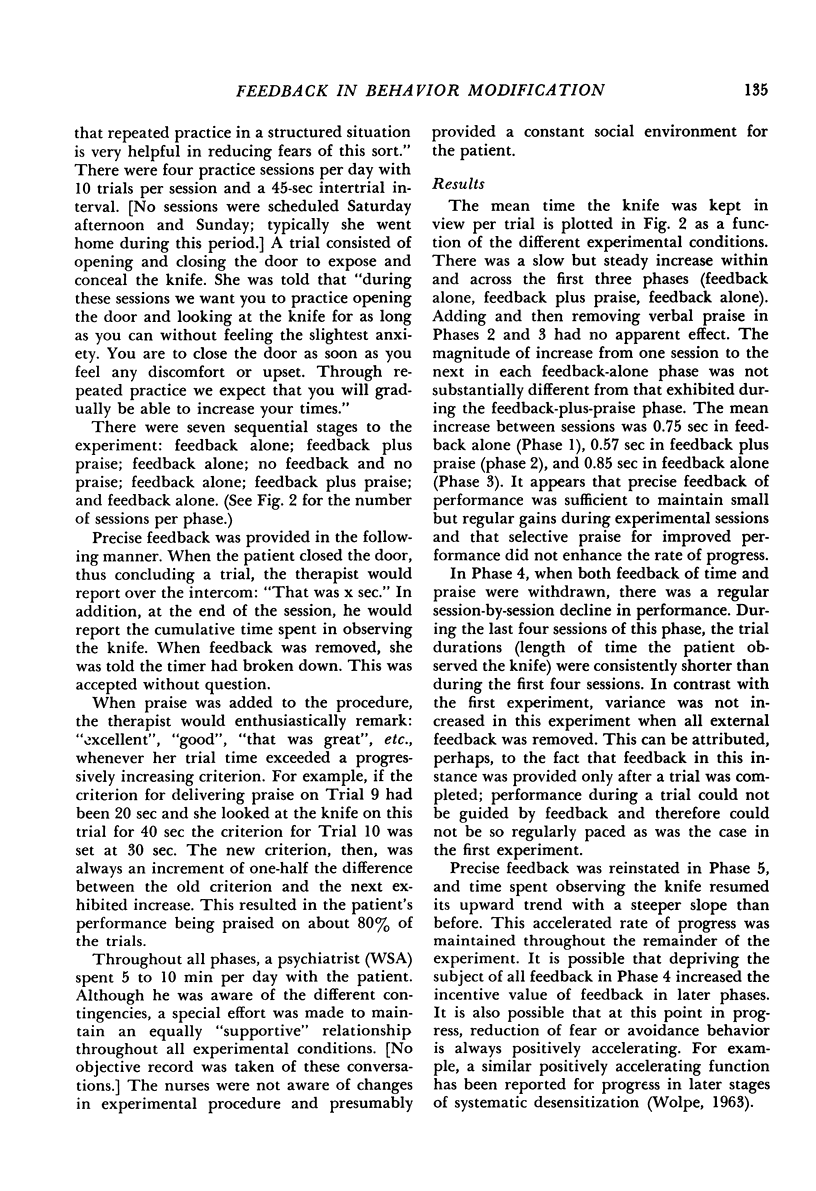
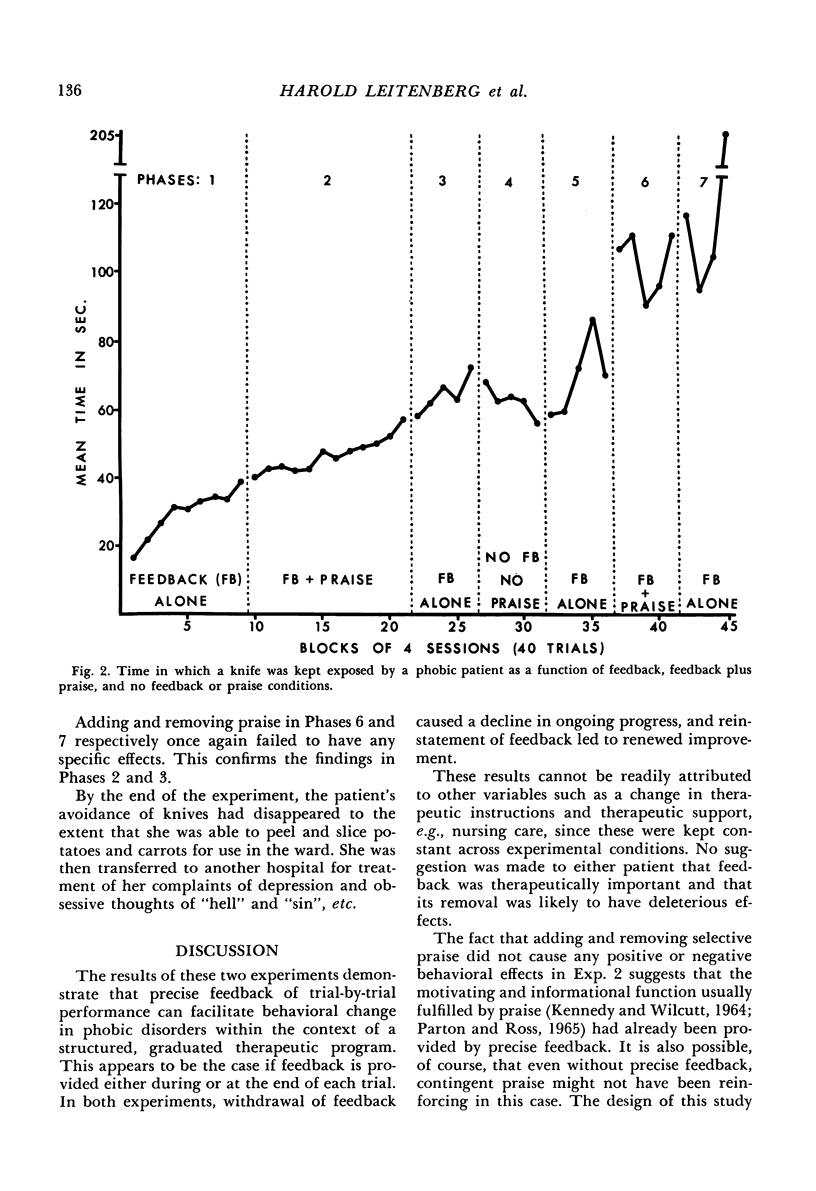
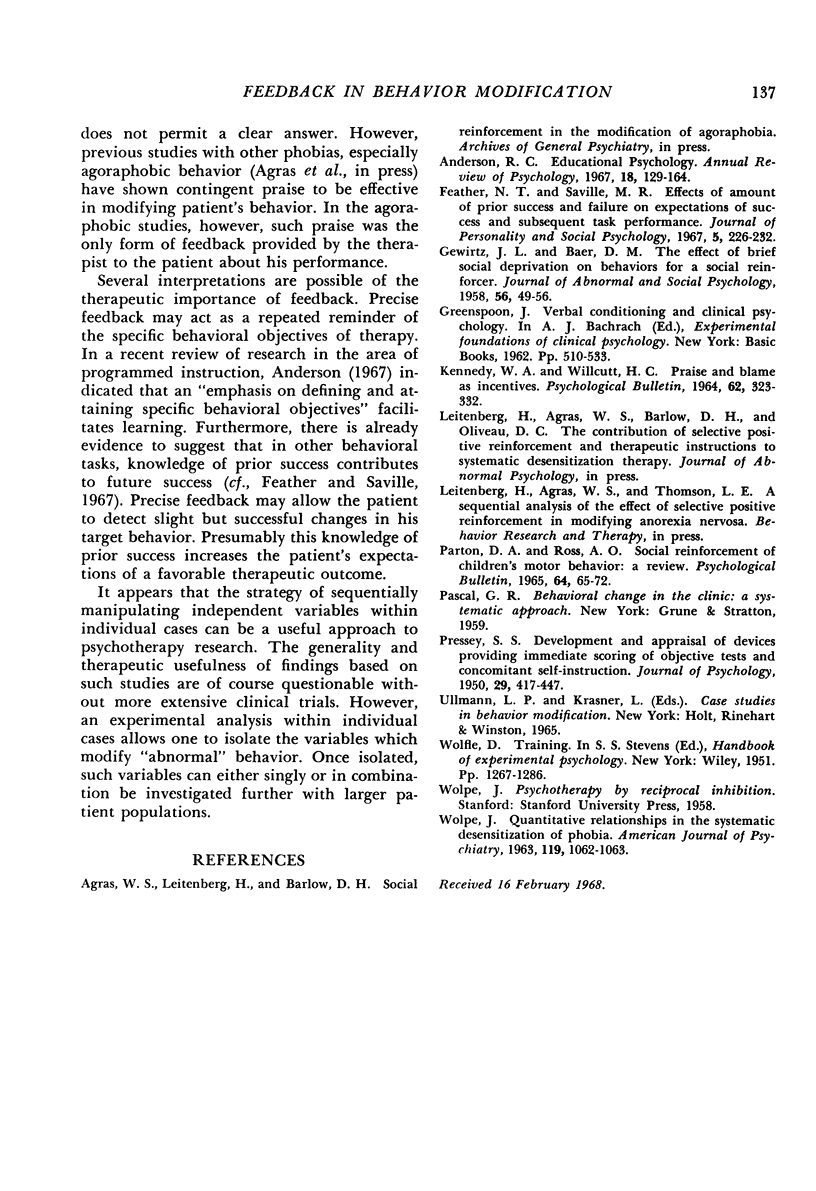
Selected References
These references are in PubMed. This may not be the complete list of references from this article.
- GEWIRTZ J. L., BAER D. M. The effect of brief social deprivation on behaviors for a social reinforcer. J Abnorm Psychol. 1958 Jan;56(1):49–56. doi: 10.1037/h0047188. [DOI] [PubMed] [Google Scholar]
- KENNEDY W. A., WILLCUTT H. C. PRAISE AND BLAME AS INCENTIVES. Psychol Bull. 1964 Nov;62:323–332. doi: 10.1037/h0042917. [DOI] [PubMed] [Google Scholar]
- PARTON D. A., ROSS A. O. SOCIAL REINFORCEMENT OF CHILDREN'S MOTOR BEHAVIOR: A REVIEW. Psychol Bull. 1965 Jul;64:65–73. doi: 10.1037/h0020494. [DOI] [PubMed] [Google Scholar]
- WOLPE J. Quantitative relationships in the systematic desensitization of phobias. Am J Psychiatry. 1963 May;119:1062–1068. doi: 10.1176/ajp.119.11.1062. [DOI] [PubMed] [Google Scholar]


